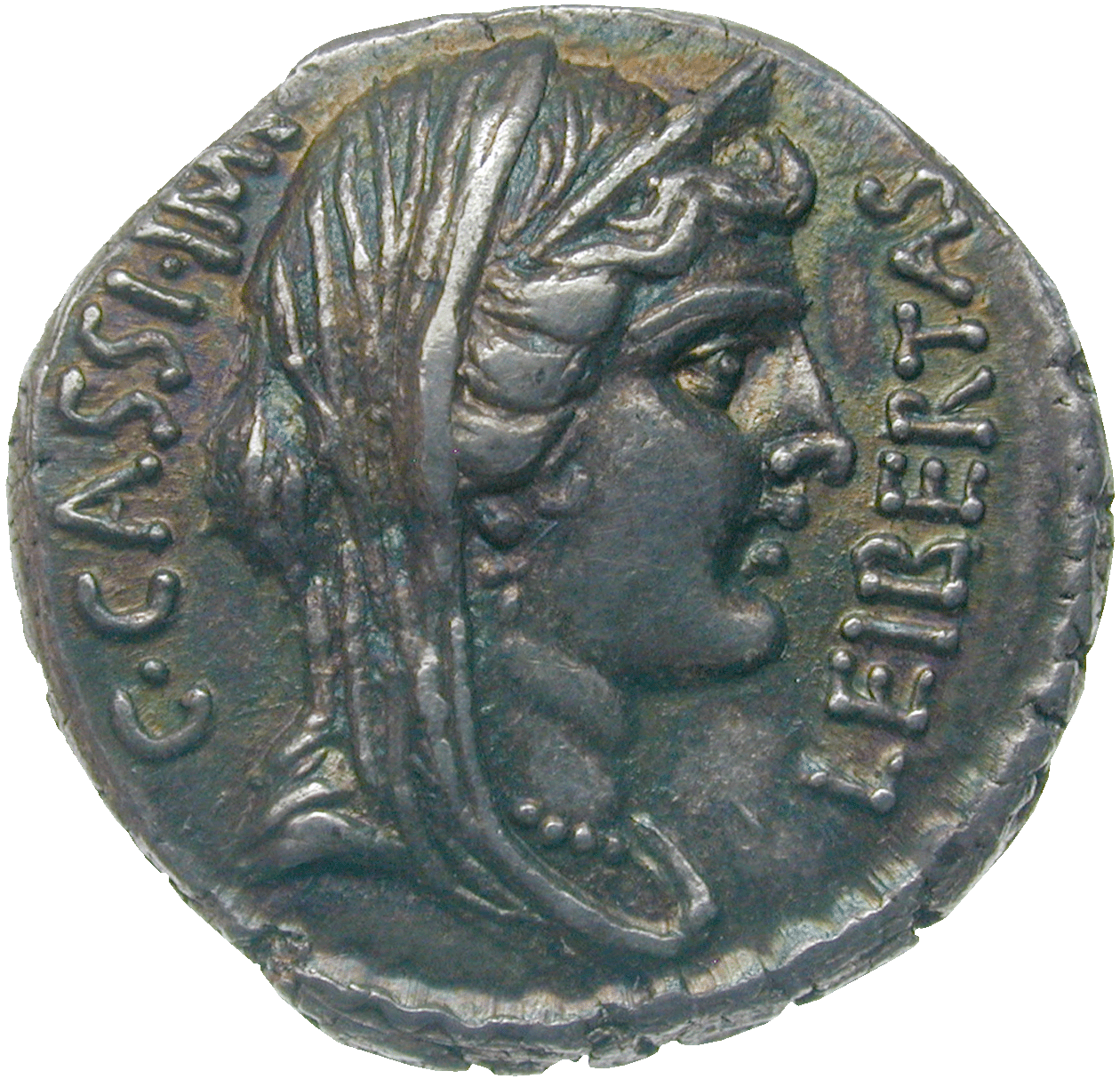Die Herausgeber dieses römischen Denars aus der Zeit um 42 v. Chr. waren Gaius Cassius Longinus und Publius Cornelius Lentulus Spinther. Beide waren beteiligt an der Verschwörung, der im Jahr 44 v. Chr. Julius Cäsar zum Opfer fiel. Cäsar stand im Verdacht, in Rom nach der Alleinherrschaft zu streben.
Nach dem Mord mussten die Attentäter aus Rom fliehen. Longinus und Spinther begaben sich nach Syrien, wo sie ein Heer zusammenstellten. Zur Bezahlung der Söldner liessen sie Denare prägen, die auf der Vorderseite den Kopf der Göttin Libertas trugen, der Personifikation der Freiheit.
Die Rückseite zeigt eine Opferkanne und einen Krummstab, beides Kultgeräte der römischen Auguren. Auguren waren Priester, die den Flug und das Fressverhalten von Vögeln studierten und daraus schlossen, ob ein geplantes Unternehmen den Göttern genehm sei. In diesem Fall dürfte ihre Voraussage negativ ausgefallen sein: 42 v. Chr. wurde Longinus in der Schlacht von Philippi besiegt. Er nahm sich daraufhin das Leben; Spinther dürfte kurz darauf ebenfalls umgekommen sein.

